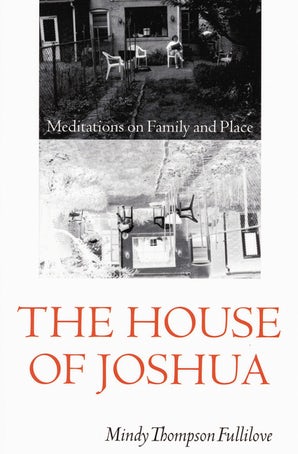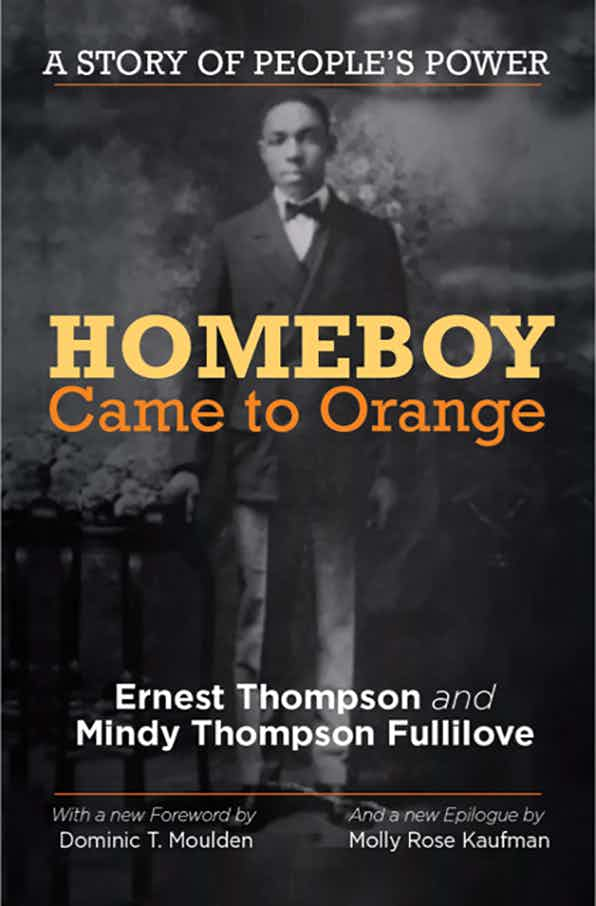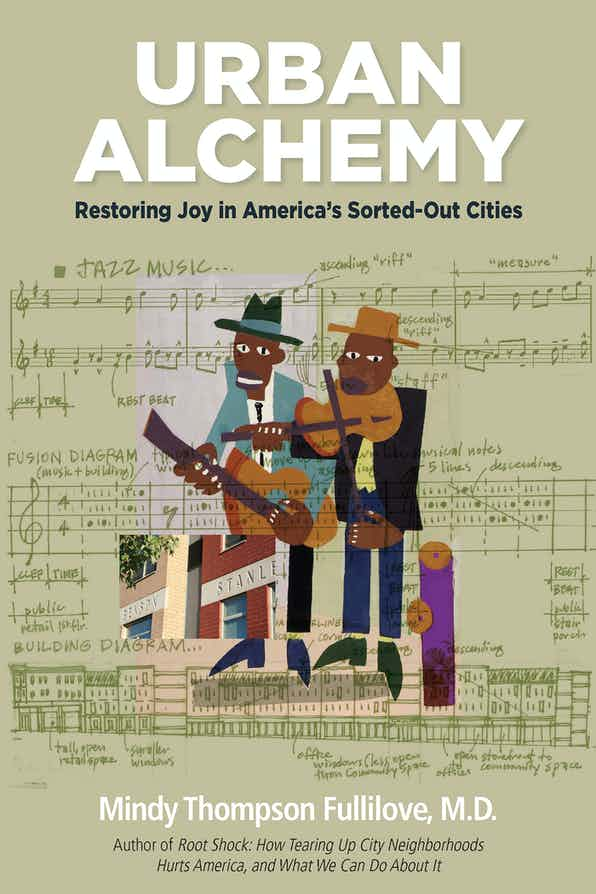The Cities Research Group (CRG) was founded in 1992 as the Community Research Group of New York State Psychiatric Institute and Columbia University Mailman School of Public Health and undertook studies of epidemics affecting poor and minority communities. CRG conducted studies of AIDS, crack cocaine addiction, trauma and violence. CRG learned from Dr. Rodrick Wallace about the link between those epidemics and noxious public policies that had undermined the functioning of poor and minority communities and the cities in which they were located. This led our team to study urbanism with Michel Cantal-Dupart, a noted French architect and urbanist. As our team focused more and more on urban systems, we made the decision to change our “C” from “Community” to “Cities.” Over time, our team dispersed from our original base at the Columbia University Medical Center. In 2016, we found a new home with the University of Orange.
The Cities Research Group, in addition to the many studies it supported, launched several important interventions, including Family-to Family, NYC RECOVERS, and City Life Is Moving Bodies (CLIMB). CRG was also part of the founding of the University of Orange.
CRG worked under the slogan “Facts people need, publications they can use.” These are some of the important publications of CRG.
Books:
Fullilove MT. Main Street: How the City’s Heart Connects Us All, New Village Press, 2020.
Cooper H and Fullilove MT. From Enforcers To Guardians: A Public Health Primer on Ending Police Violence. John Hopkins University Press, 2020.
Fullilove MT. Urban Alchemy: Restoring Joy in America’s Sorted-Out Cities, New Village Press, 2013.
Wallace R and Fullilove MT. Collective Consciousness and Its Discontents: Institutional Distributed Cognition, Racial Policy and Public Health in the United States, Springer Publishing, 2008.
Fullilove MT. Root Shock: How Tearing Up City Neighborhoods Hurts America and What We Can Do About It, Ballantine Books, New York, 2004. Second edition: New Village Press, 2016.
Fullilove MT. The House of Joshua: Meditations on Family and Place. University of Nebraska Press, Lincoln, 1999.
Dissertations:
Boutros, Mark. Is there space for place? Forced migration and the psychology of place. ProQuest, 2006.
Hernandez-Cordero, Lourdes J. “Fostering collective recovery: Exploring the role of organizations in post-disaster trauma recovery.” PhD diss., Columbia University, 2004.
Madoff, Jennifer Stevens. “Islands of Success in the Midst of Inequality: the situation of AIDS care for women of color.” PhD diss., Columbia University, 2002.
Rennis, Lesley, Archetypes of spiritual awakening: The 12-step Journey of Redemption, Columbia University Teachers College, 2002
Articles:
Fullilove, Mindy Thompson, and Michel Cantal-Dupart. “Medicine for the city: Perspective and solidarity as tools for making urban health.” Journal of bioethical inquiry 13, no. 2 (2016): 215-221.
Izenberg J, Fullilove MT. Hospitality invites sociability, which builds cohesion: A model for the role of main streets in population mental health, Journal of Urban Health: 93.2 (2016): 292-311
Fullilove, Mindy Thompson, and Michel Cantal-Dupart. “Medicine for the city: Perspective and solidarity as tools for making urban health.” Journal of Bioethical Inquiry (2016): 1-7.
Rodriguez LJ, Arlene Peguero, Mindy Thompson Fullilove, Arelis De La O, Howard Joseph, Robert E. Fullilove: Acts of Neighbouring: Socially-Engaged Urban Investment and Youth Violence Prevention. Built Environment 10/2014; 40(3). DOI:10.2148/benv.40.3.426
Fullilove , MT. Crack in the Lifestory: The experience of David Jenkins. Journal of Equity in Health, 2014;3: 89-95.
Bosman F, Bakker H, Fullilove MT. The Mental Health Center in Post-Disaster Recovery: A 13-Year Retrospective of Mediant’s Work in Enschede, the Netherlands, International Journal of Mental Health, Volume 42, Number 2 – 3 / Summer-Fall 2013:130 – 148.
Fullilove MT, Wallace R. Serial forced displacement in American cities, 1916-2010. Journal of Urban Health, 2011:88; 381-389, DOI: 10.1007/s11524-011-9585-2.
Greene D, Parisa Tehranifar, Lourdes J Hernandez-Cordero, Mindy Thompson Fullilove: I Used to Cry Every Day: A Model of the Family Process of Managing Displacement. Journal of Urban Health 06/2011; 88(3). DOI:10.1007/s11524-011-9583-4.
McGrath, Moriah McSharry, Fullilove, Robert E., Kaufman, Molly Rose, Wallace, Rodrick, Fullilove, Mindy Thompson, The Limits of Collaboration: A Qualitative Study of Community Ethical Review of Environmental Health Research, Am J Public Health 2009 0: AJPH.2008.149310.
Lourdes J. Hernández-Cordero, Mindy Thompson Fullilove, Constructing Peace Helping Youth Cope in the Aftermath of 9/11, American Journal of Preventive Medicine, 2008;34(3S):S31–S35.
Wallace R, Fullilove MT, Fullilove RE, Wallace D. Collective consciousness and its pathologies: Understanding the failure of AIDS control and treatment in the United States, Theoretical Biology and Medical Modelling, 2007, 4:10 (26 Feb 2007) http://www.tbiomed.com/content/4/1/10
Green, L.L., Fullilove, M.T., Fullilove, R.E.: Remembering the Lizard: Reconstructing Sexuality in the Rooms of Narcotics Anonymous, Journal of Sex Research, 42:28-34, 2005.
Fullilove, M., Green, L., Hernandez-Cordero, L., and Fullilove, R.: Obvious and not-so-obvious strategies to disseminate research. Health Promotion Practice. 7(3): 306-311, 2006.
Fullilove MT, Hernandez-Cordero L, Madoff JS, Fullilove RE. Promoting collective recovery through organizational mobilization: the post-9/11 disaster relief work of NYC RECOVERS, Journal of Biosocial Science, 2004;36:479-489.
Fullilove MT. Links between the social and physical environments. Pediatric Clinics of North America, 2001; 48:1253-1266.
Fullilove, MT, Root Shock: The Consequences of African American Dispossession. Journal of Urban Health, 2001: Vol. 78:72-80.
Fullilove RE, Green L and Fullilove MT. The Family-to-Family program: a structural intervention with implications for the prevention of HIV/AIDS and other community epidemics. AIDS, 2000;14(S1):S63-S68.
Heon-Klin V, Sieber E, Huebner J, and Fullilove MT. The influence of geopolitical change on the well-being of a population: The Berlin Wall. American Journal of Public Health, 2000;91:369-374.
Fullilove RE, Fullilove MT, Northridge ME, Ganz ML, Bassett MT, McLean DE, Aidala AA, Gemson DH, McCord C. Risk factors for excess mortality in Harlem: findings from the Harlem Household Survey. American Journal of Preventive Medicine 1999;16(3S):22-28.
Fullilove MT and Fullilove RE. Homosexuality and the African American church: the paradox of the “open closet.” American Behavioral Scientist 1999;42:1117-1129.
Fullilove MT, Green LL, Fullilove RE. Building momentum: an ethnographic study of inner-city redevelopment. American Journal of Public Health 1999;89:840-844.
Watkins BX and Fullilove MT. Crack cocaine and Harlem. Souls 1999;1:37-48.
Watkins BX, Fullilove RE, Fullilove MT. Arms against illness: Crack cocaine and US Drug Policy, Health and Human Rights 1998;2:43-58.
Fullilove, MT. Promoting social cohesion to improve health, Journal of the American Medical Women’s Association 1998;53:72-76.
Fullilove MT, Héon V, Jimenez W, Parsons C, Green LL, Fullilove RE. Injury and anomie: the effects of violence on an inner-city community. American Journal of Public Health 1998;88:924-927.
Green LL, Fullilove MT, and Fullilove RE. Stories of spiritual awakening: the nature of spirituality in recovery. Journal of Substance Abuse Treatment.1998;15:325-331.
Fullilove RE, Edgoose JC, Fullilove MT. Chaos, criticality and public health. Journal of the National Medical Association 1997;89:311-316
Panzer P, and Fullilove MT. Belinda’s puzzle: assembling the pieces of an illness. American Journal of Psychiatry 1997;154:677-680
Wallace R, Fullilove MT, Flisher AJ. AIDS, violence and behavioral coding: information theory, risk behavior and dynamic process on core-group sociogeograhic networks. Social Science and Medicine 1996;43:339-352.
Fullilove M. Psychiatric implications of displacement: contributions from the psychology of place. American Journal of Psychiatry 1996;153:1516-1523.
Schwartz A, Eilenberg J, Fullilove MT. Gloria’s despair: struggling against the odds.
American Journal of Psychiatry 1996;153:1334-1338.
Fullilove MT. Managing change: psychosocial issues for women. Med Scape 1996;1.
[online article]
Eilenberg J, Fullilove MT, Goldman RG, Mellman L. Quality and use of trauma histories obtained from psychiatric outpatients through mandated inquiry. Psychiatric Services 1996;47:165-169.
Wallace R, Wallace D, Andrews H, Fullilove R, Fullilove MT. The spatiotemporal
dynamics of AIDS and TB in the New York metropolitan region from a sociogeographic perspective: understanding the linkages of central city and suburbs. Environment and Planning A 1995;27:1085-1108.
Wallace R, Fullilove M, Fullilove R, Gould P. Will AIDS be contained within U.S. minority urban populations? Social Science and Medicine 1994;39:1051-1062.
Fullilove MT, Young R, Panzer PG, Muskin P. Psychosocial issues in the management of patients with tuberculosis. The Journal of Law, Medicine and Ethics . 1993;21:324-31.




